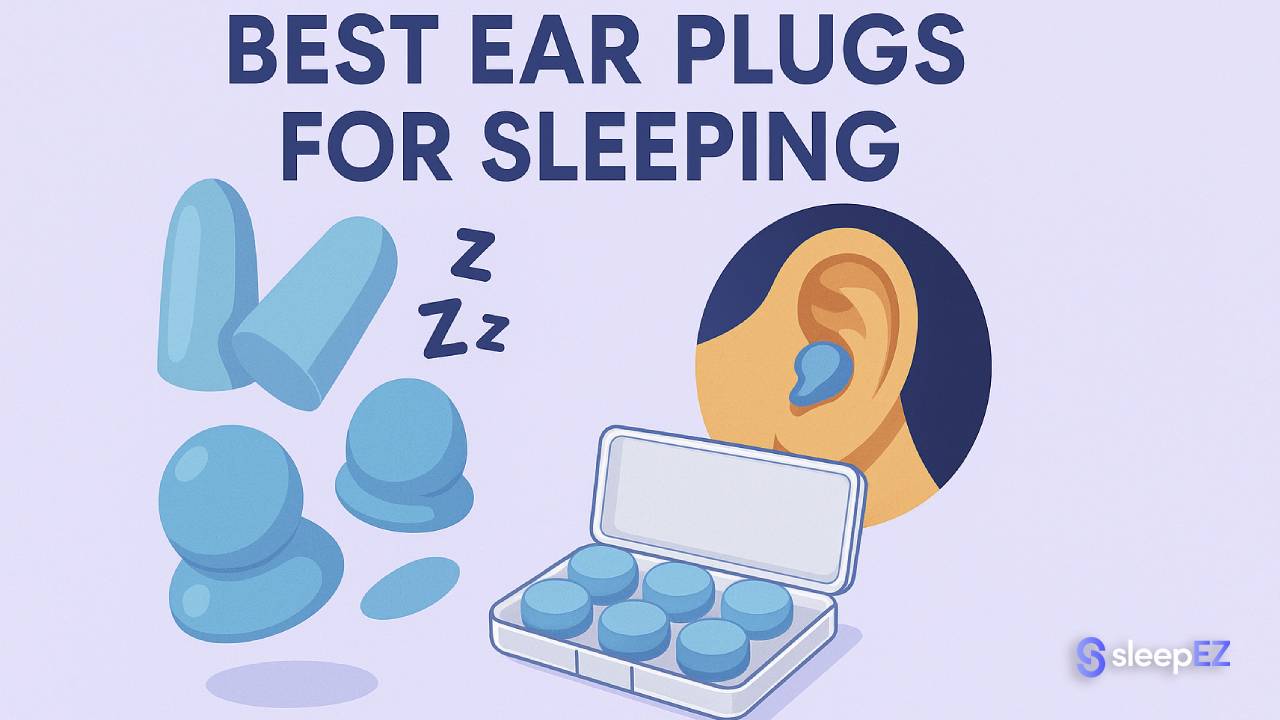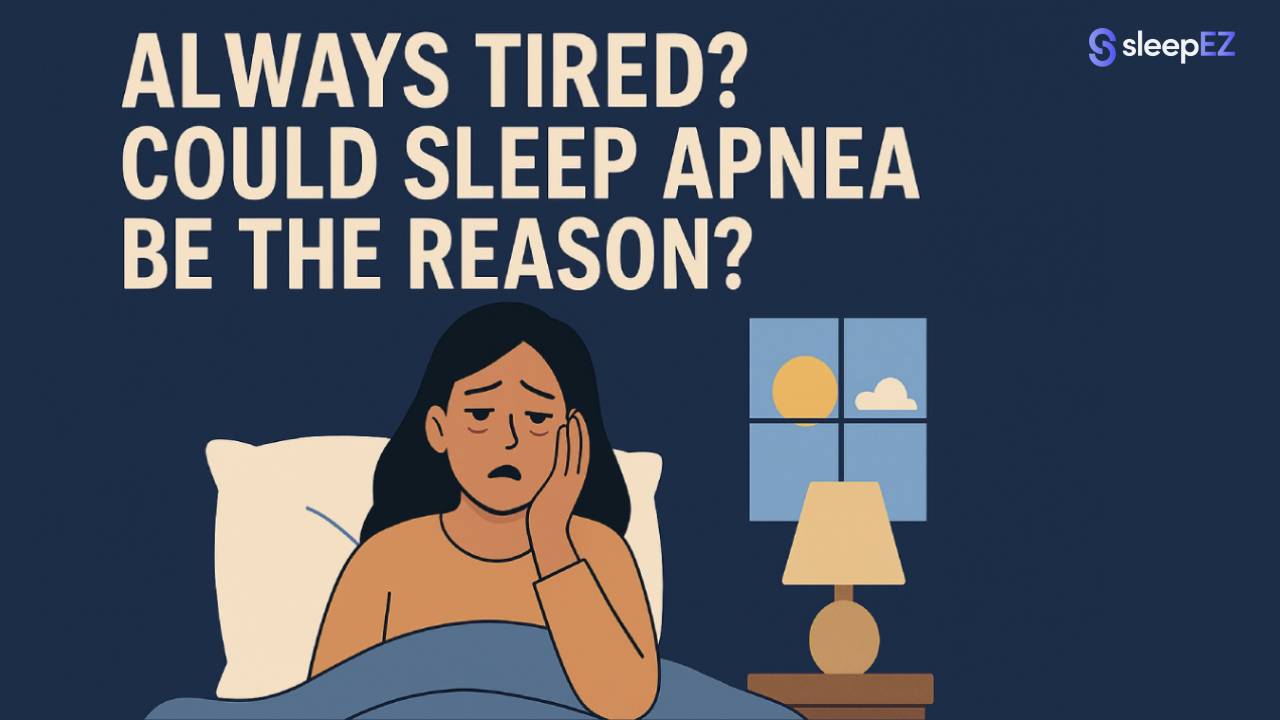You're lying in bed trying to sleep. Traffic hums outside your window. Your neighbor's dog barks. Your partner snores next to you. What should be peaceful rest has become hours of tossing and turning.
This happens to millions of people trying to sleep. What many don't know is that unwanted noise isn't just annoying. It's a real health risk that affects your body and mind in serious ways.
This guide explains what noise pollution is, how it harms your health (especially your sleep), where it comes from, and what you can do to protect yourself.
What Is Noise Pollution?
Noise pollution is unwanted, loud, or constant sound that hurts your health and makes life worse. You can't see it like other pollution, but it affects your body and mind just as much.
Sound gets measured in decibels (dB). Normal talking is about 60 dB. Sounds over 85 dB can damage your hearing permanently if you hear them for long periods.
The World Health Organization calls noise pollution the second worst environmental threat after air pollution. Yet most people just accept it as part of modern life.
Read: 5 Best Ear Plugs for Sleeping in Australia
What Causes Noise Pollution?
Noise pollution comes from many sources around us. Some are obvious, others might surprise you. Understanding where these sounds come from helps you figure out how to deal with them.
Here are the five main sources of unwanted noise:
1. Traffic Noise
Cars, trucks, motorcycles, trains, and planes create the most common noise problem. City streets can hit 70-80 dB all day and night. Highways make noise you can hear for miles. Planes flying overhead can reach 90 dB.
2. Construction Noise
Jackhammers, drills, and heavy machines make some of the loudest sounds around. They often reach 100-110 dB. Construction can go on for months, creating stress for everyone nearby.
3. Household and Neighbor Noise
This includes loud music, TV, appliances, barking dogs, and snoring. These sounds might seem minor, but they're often the most disruptive to sleep. They happen when you expect quiet and come at random times.
4. Industrial Noise
Factories, power plants, and businesses create constant background noise. You might get used to it, but it still stresses your body without you knowing.
5. Social Events
Concerts, festivals, and sports events create loud but temporary noise. They often go over 100 dB and can damage hearing quickly.
The Health Effects of Noise Pollution
Most people think noise is just annoying. Science shows that constant unwanted sound causes serious health problems.
Impact on Hearing
Loud noise damages hearing permanently. Sounds over 85 dB for long periods cause hearing loss. Sounds over 120 dB can hurt your ears right away. Tinnitus (ringing in your ears) affects millions of people and gets worse with noise exposure. Once your hearing is damaged, it never comes back.
Impact on Cardiovascular Health
Noise affects your heart in ways that might surprise you. Constant noise makes your heart beat faster, raises blood pressure, and releases stress hormones like cortisol. Long-term noise exposure increases your risk of heart attacks and strokes. Your body treats noise as a threat even while you sleep.
Impact on Mental Health
Noise pollution causes stress, anxiety, anger, and trouble focusing. Children who live with constant noise have learning problems and memory issues. Adults get more depressed and aggressive. Your body's stress system stays active all the time, which hurts your mental health.
Noise Pollution and Sleep Deprivation
This connection matters most because good sleep affects everything else about your health.
Your brain keeps processing sounds while you sleep. Traffic, snoring, and other noise stop you from reaching deep sleep stages. Your body needs these stages to recover, store memories, and stay healthy. Even if you don't fully wake up, these sounds make your brain think there's danger.
Poor sleep from noise causes:
- Trouble thinking clearly, remembering things, and making good decisions
- Weaker immune system that gets sick more often
- Hormone problems that affect weight, hunger, and mood
- More accidents because you're tired during the day
- Long-term health issues like diabetes, obesity, and heart disease
Even quiet sounds (40 dB, like a library) can disrupt sleep quality. This means small noise sources can cause big health problems.
How to Reduce Noise Pollution and Protect Your Hearing
You can fight noise pollution in several ways, from community fixes to personal protection.
Community-Level Solutions
Cities can build noise barriers, require better sound insulation in buildings, limit industrial noise at night, and keep residential areas away from highways. These solutions help whole communities but take years to happen.
How to Reduce Noise at Home
You can make your home quieter with these changes:
Double-pane windows block outside noise well. Heavy curtains absorb sound, especially ones made for noise control. Carpet and rugs work better than hard floors. Smart furniture placement helps absorb sound waves. Seal gaps around doors and windows to stop sound leaks. White noise machines can cover up sudden sounds.
These work well but cost money and time. They also can't stop all noise, especially in your bedroom while you sleep.
Personal Solutions for Better Sleep
You can't always control outside noise, but you can control what you hear. High-quality earplugs give you immediate quiet for better sleep.
QuietBuds are made specifically for comfortable, all-night wear. They block up to 27dB of sound, which stops snoring, traffic, and neighbor noise from ruining your sleep.
What makes QuietBuds different:
- Soft medical-grade silicone that doesn't hurt your ears
- Multiple sizes for a perfect fit
- Reusable design that saves money and helps the environment
- Tested against common sleep-disrupting sounds
- Comfortable enough to wear all night
Unlike foam plugs that fall out or hurt your ears, QuietBuds stay put and feel good for hours. They work especially well against low-frequency sounds like snoring, traffic, and machine noise that get through other barriers.
The result is deep, uninterrupted sleep that lets your body work at its best. Users fall asleep faster, sleep through the night, and wake up refreshed and energetic.
Frequently Asked Questions (FAQ)
What is considered a harmful noise level?
Sounds over 85 dB can damage hearing with long exposure. Normal conversation is 60 dB, busy traffic is 70-80 dB, and rock concerts reach 110 dB or higher. The World Health Organization says bedrooms should stay under 30 dB for good sleep.
Can noise pollution cause anxiety?
Yes. Constant unwanted noise triggers your body's stress response and releases stress hormones. Over time, this can lead to anxiety disorders, panic attacks, and other mental health problems.
What are the five main effects of noise pollution?
The main effects are: hearing damage and tinnitus, heart problems including high blood pressure and heart attack risk, mental health issues like anxiety and depression, sleep problems and insomnia, and brain problems including poor concentration and memory.
How can I block out snoring noise?
QuietBuds work well against snoring, which happens in the 20-300 Hz range. Their 27dB noise reduction stops snoring sounds while staying comfortable all night. Unlike white noise machines that add more sound, QuietBuds simply block the unwanted noise at your ear.




Leave a comment
This site is protected by hCaptcha and the hCaptcha Privacy Policy and Terms of Service apply.